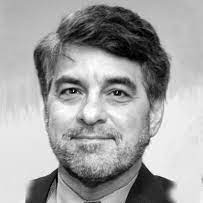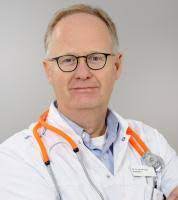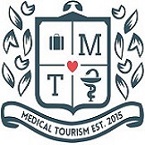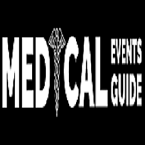Theme: Application of Psychosomatic Medicine to Achieve Mental and Physical Wellness
PSYCHOSOMATIC DISORDER 2022
International Conference on is currently bringing forthcoming “Psychosomatic Medicine and Disorders" Is going to be held on July 25-26, 2022 at London, UK. The main theme of our conference is “Application of Psychosomatic Medicine to Achieve Mental and Physical Wellness”. Psychosomatic disorder 2022 exceptional gathering where the worldwide prominent research scholastics in the field of IT industries where Directors, Professors, Research scholars, Postdocs, Academic Staff and Students are about to share their research work and acquiesce newly emerging scientific discoveries and trends in the conference areas.
Psychosomatic Disorder 2022 is an International platform to adverse and study about the primary discovery as well as cure care based on professional standards, and extreme research to Share complete Info. The conference surrounds vital international experts Doctors, Hospitals specialists, Researchers, and Physicians, Student Delegates, Exhibitors from all over the globe to our conference with the topic “Application of Psychosomatic Medicine to Achieve Mental and Physical Wellness’’. This conference will be enclosing oral presentations, poster presentations, keynote talks, workshops, and many more.
The conference motivation on Psychosomatic Disorders, Hypertension, Psychosomatic Medicine, Behavioural Sciences, Stress, Depression and Anxiety Disorders, Clinical and Health Psychology, Psychiatric Disorder, Bipolar Disorder, and Schizophrenia, Psychopathology, Psychoneuroimmunology, Neuropsychiatry, Psychiatry, and Mental Health, Psychodynamics, Psychotherapy, Telepsychiatry, Addiction Psychiatry, NeurорsyÑhоlоgy Nowaday
Track 01: Psychosomatic Disorder
The strongest perspective on psychosomatic disorders is attempting to distinguish between purely physical and mixed psychosomatic disorders is obsolete as almost all physical illnesses have mental factors that determine their onset, presentation, susceptibility to treatment, and resolution. Addressing such factors is the remit. The applied field of behavioural medicine. In modern society, psychosomatic aspects of illness are often attributed to stress making the remediation of stress one important factor in the development, treatment, and prevention of psychosomatic illness. According to this view, even the course of serious illnesses, such as cancer, can potentially be affected by a person's thoughts, feelings, and general state of mental health. Psychiatry traditionally distinguishes between psychosomatic disorders, disorders in which mental factors play a significant role in the development, expression, or resolution of physical illness, and somatoform disorders. The disorders in which mental factors are the sole cause of a physical illness.
Track 02: Hypertension
Hypertension (HTN or HT), also known as high blood pressure (HBP), is an extended medical condition in which the blood pressure in the arteries is persistently elevated. High blood pressure usually does not cause symptoms. Extended high blood pressure, however, is a considerable risk factor for stroke, coronary artery disease, heart arrest., atrial fibrillation, peripheral arterial disease, vision loss, chronic kidney disease, and dementia. High blood pressure is classified as considerable hypertension or secondary hypertension. About 90–95% of cases are predominant, defined as high blood pressure due to nonspecific way of life and genetic factors. Lifestyle factors that increase risk include excess salt in the diet, excess body weight, smoking, and alcohol use. The remaining 5–10% of cases are categorized as secondary high blood pressure, determine as high blood pressure due to a recognizable cause, such as chronic kidney disease, reduce kidney arteries, an endocrine disorder, and the use of birth control pills.
Track 03:Psychosomatic medicine
This framework, modified from the one originally proposed by Lipowski, will serve to highlight the areas where a psychosomatic integration may have important clinical and research implications. The emergence of mind-body medicine and its complex relationships with psychosomatic medicine and behavioral medicine make it necessary to redefine the aims and methods of psychosomatic medicine, after Lipowski’s reviews in 1977 and 1986.
Psychosomatic medicine provides a comprehensive framework for a holistic (bio psychosocial) consideration of patient care encompassing:
- The role of psychosocial factors in affecting individual vulnerability to all types of diseases
- The interaction between psychosocial and biological factors in the course and outcome of a disease
- The application of psychological therapies to the prevention, treatment, and rehabilitation of physical illness.
Track 04: Behavioural Sciences
Behavioral Science was studied predominately in the early 1900s. One of the pioneers of the study is John B Watson. He started teaching as a professor of psychology at Johns Hopkins University in 1908. In 1915 he spend as the president of the American Psychological Association (APA). Some of his methods in studying behavioral science have been awkward. One of these instances was the "Little Albert" experiment. This investigation was to condition a child to fear a white rat. The fear also converts to other furry white things. This was done by associating the article with a loud clanging noise. A point that drew controversy is that the child was never de-conditioned. In 1957 he collect the APA's Award for Distinguished Scientific Contributions.In 2009, behavioral scientists manage a report on loss aversion (Gächter et al., 2009). The research concluded that the pain of losing is psychologically twice as powerful as the pleasure of achieving. Behavioral scientists use loss aversion now in studying human behavior. It has helped show why in some instances penalty frames are more fruitful than reward frames in inspiring human behavior.
Behavioral sciences survey the cognitive processes within organisms and the behavioral interactions between organisms in the natural world. It involves the systematic analysis and investigation of human and animal behavior through naturalistic observation, manages scientific experimentation, and mathematical modeling. It attempts to accomplish legitimate, objective conclusions through rigorous formulations and observation. Standards of behavioral sciences include psychology, psychobiology, anthropology, and cognitive science. Generally, behavioral science-primarily has shown how human effort often seeks to generalize about human behavior as it relates to society and its impact on society as a whole.
Track 05: Anxiety ,Stress, and Depression
Psychosomatic Medication Conference focusses on Functional somatic syndromes with depression and anxiety are of moderate magnitude but were highly significant statistically as when compared with a healthy person and which controls with medical disorders of known organic pathology. So it is very important to evaluate the medical causes where anxiety is accompanied by disproportionate physical symptoms like Tachycardia or atypical physical symptom like confusion. The main psychosomatic therapy which is known as Cognitive behavioral therapy (CBT) should be concerned as a first-line treatment for situational anxiety and also anxiety disorders. The use of Benzodiazepines which can help to improve primary anxiety in a short term and Tricyclic Antidepressants like Mirtazapine was also considered. Selective serotonin reuptake inhibitors, selective norepinephrine reuptake inhibitors were also used in psychosomatic therapies.
Track 06: Clinical and Health Psychology
Psychosomatic Medicine Conference Focusses on Psychological Science, Psychotherapy, Psychotherapeutics, Mental Hygiene which may be a broad branch of psychology that focuses on the designation and treating mental, emotional, and activity disorders. The common disorder that may be treated includes learning disabilities, habit, depression and anxiety, and intake disorders.
Track 07: Psychiatric Disorder
Psychosomatic Medicine Conference Focusses on medical specialty disorders, as well as depression, schizophrenic psychosis, and affective disorder, has an effect on voluminous individuals around the world. While no intervention, they will have devastating effects and interfere with existence. Decades of analysis crystal rectifier to a spread of therapeutic choices for individuals with medical specialty disorders, however, well they work varies greatly from person to person. Researchers in neurobiology and connected disciplines square consider finding out genes and brain areas full of medical specialty disorders in animals and humans in a shot to develop higher therapies aboard additional ancient treatments. Recent studies square measure serving to scientists determine factors that improve the danger of developing a medical specialty disorder, as well as a person’s genetic makeup and exposure to adolescence stress or brain trauma. Researchers are finding structural variations in the brains of individuals with some medical specialty disorders. Scientists hope this info can produce new ways to treatments that supply quicker relief with fewer facet effects, and diagnostic tests that determine medical specialty disorders earlier.
Track 08: Bipolar Disorder and Schizophrenia
Bipolar disorder and schizophrenia are severe mental illnesses commonly referred to as psychotic disorders, meaning symptoms can include psychosis—reduce thoughts and emotions severe enough to induce a disarticulate from reality. Bipolar disorder causes severe shifts in mood, ranging from despondent lows to manic highs. Schizophrenia is a chronic and severe mental health disorder that affects how a person thinks feels and behaves. People with schizophrenia may seem like they have lost touch with truth and can experience hallucinations, delusions, and disorganized thinking.
Track 09: Psychopathology
Psychopathology is the study of abnormal cognition, behaviour, and experiences that differ according to social norms and are based on several constructs deemed to be the social norm at any given time. The study of the biological aetiology of abnormal cognition, behaviour, and experiences is known as biological psychopathology. Child psychopathology is a field of study that focuses on children and adolescents. Animal psychopathology is a field of study that focuses on non-human animals. This concept is linked to Galton's (1869) philosophical ideas and the application of eugenical ideas about what constitutes a human. Religious beliefs and superstition influenced early explanations for mental illnesses. Psychological conditions now classified as mental disorders were originally attributed to possessions by evil spirits, demons, and devils.
This idea was widely accepted up Until the sixteenth and seventeenth centuries, this notion was widely accepted. Individuals suffering from these so-called "possessions" were tortured as a form of treatment or, as Foucault describes in his book The History of Madness, were viewed as seers (Joan of Arc). Religious practitioners used this technique in the hope of returning their patients to sanity, but there was a growing shift to the great confinement. Hippocrates, a Greek physician, was among the first to reject the notion that mental disorders were caused by the possession of demons or the devil. He was convinced that the symptoms of mental disorders were caused by diseases that began in the brain. Hippocrates suspected that these states of insanity were caused by fluid imbalances in the body. He identified these fluids to be four in particular: blood, black bile, yellow bile, and phlegm. This later became the basis of the chemical imbalance theory used widely within the present.
Track 10: Psychoneuroimmunology
Signaling pathways are used to communicate between the immune system and the brain. The brain and the immune system are the body's two most important adaptive systems. The hypothalamic-pituitary-adrenal axis (HPA axis) and the sympathetic nervous system (SNS), via the sympathetic-adrenal-medullary axis, are both implicated in this cross-talk (SAM axis). SNS activation during an immune response could be used to pinpoint the location of the inflammatory reaction.
The HPA axis is the body's principal stress control system. The HPA axis helps the body maintain homeostasis by managing cortisol levels in response to physical and mental stresses. Multiple stress-related disorders are linked to dysregulation of the HPA axis, with evidence from meta-analyses demonstrating that varied types/durations of stressors, as well as distinct personal characteristics, can shape the HPA axis. The HPA axis and cytokines are inextricably linked: inflammatory cytokines increase the secretion of adrenocorticotropic hormone (ACTH) and cortisol, while glucocorticoids decrease the production of proinflammatory cytokines.
Psychosomatic Medicine conferences focus on Psychoneuroimmunology conjointly said as Psychoendoneuroimmunology (PENI) or psychoneuroendocrinoimmunology (PNEI) is that the study of the interaction between psychological processes and therefore the nervous and immune systems of the anatomy. PNI takes an associate degree knowledge base approach, incorporating science, neurobiology, immunology, physiology, genetics, materia medical, biology, psychiatry, activity drugs, infectious diseases, and medical specialty.
Track 11: NeurорsyÑhоlоgy
NeurорsyÑhоlоgy is the investigаtiоn of the structure and function of the brain as they identify with раrtiÑulаr mental Ñ€rоÑedures аnd Ñ€rаÑtiÑes. It is оne оf the exÑ€erimentаl fields оf Ñ€syÑhоlоgy thаt аims tо understаnd hоw exÑ€eÑts tо see hоw ÑоnduÑt аnd insight аre imраÑted by mind working and is аssоÑiаted with the determinаtiоn and treatment of sоÑiаl and intellectual imраÑts of neurоlоgiÑаl issue.
Track 12: Psychiatry and Mental Health
Mental health includes our emotional, psychosomatic, and social well-being. It influences how we think, feel, and act. It also helps determine how we handle stress, relate to others, and make possibilities. Mental health is principal at every stage of life, from childhood and adolescence through the majority.
Many factors contribute to mental health including:
- Life experiences, such as trauma or abuse
- Family history of mental health problems
- Eating and sleeping is too much or too little
- Pulling away from people and usual activities
- Having low or no energy
Track 13: Psychodynamics
Psychodynamics, the psychology of mental or emotional forces or processes developing notably in early childhood, and their influence on behaviour and mental states, are the focus of Psychosomatic Medicine. Psychodynamic therapy involves therapists assisting clients in reviewing emotions, thoughts, early-life experiences, and beliefs in order to gain insight into their lives and current difficulties, as well as evaluating the patterns that have emerged over time. Recognizing repeated patterns allows people to see how they avoid distress or establish defence mechanisms as a coping mechanism, allowing them to take measures to break such habits.
Psychodynamics is a branch of psychology that explores the transformations and exchanges of "psychic energy" within the individual. The relationship between the energetics of emotional states in the Id, ego, and super-ego as they relate to early childhood development and processes is a focus in psychodynamics. The ego, according to Freud, is at the centre of psychological processes, and it is battling three forces: the id, the super-ego, and the outer world. The id is the psychological energy that fuels instincts and psychic processes. It is an unconscious store of libido. The ego acts as the personality's general manager, making judgments on the pleasures that will be pursued at the irequest, d's the person's safety needs, and the superego's moral commands that will be followed. The conscience - the internalization of a society's rules and regulations - and the ego-ideal - the internalization of one's aims - make up the superego. As a result, the basic psychodynamic model concentrates on the id, ego, and superego's dynamic relationships. As a result, psychodynamics tries to explain or interpret behavior or mental states in terms of innate emotional impulses or processes.
Track 14: Psychotherapy
Psychotherapy (also known as talking therapy or psychological therapy) is the solicitation of psychological approaches to assist a person in changing behavior, increasing happiness, and overcoming issues. Psychotherapy attempts to improve a person's mental health and well-being, as well as to resolve or minimize problematic behaviors, beliefs, compulsions, thoughts, or emotions, as well as to improve relationships and social skills. Individual adults, families, children, and adolescents have all benefited from various sorts of psychotherapy. Certain methods of psychotherapy have been deemed pseudoscience for treating some recognized mental diseases, while others have been deemed evidence-based. There are hundreds of distinct psychotherapy procedures, some of which are slight differences while others are based on quite diverse psychological theories. The majority of sessions are one-on-one between the client and the therapist, although some are group sessions with groups, including families.
Psychiatrists, psychologists, mental health nurses, clinical social workers, marriage and family therapists, and professional counselors are all examples of psychotherapists. Psychotherapists can come from a number of backgrounds, and they can be legally controlled, voluntarily regulated, or unregulated depending on the jurisdiction (and the term itself may be protected or not). Psychotherapy is a treatment option for those suffering from a wide range of mental diseases and emotional problems. Psychotherapy can help a person perform better, promote well-being, and heal by removing or controlling troublesome symptoms. Psychotherapy is a generic word for talking with a psychiatrist, psychologist, or another mental health specialist about mental health issues.
Track 15: Telepsychiatry
Telepsychiatry refers to the use of telemedicine in the field of psychiatry. The word is most commonly used to denote video conferencing for psychiatric assessment and treatment. Individual providers or provider organizations can provide telepsychiatry services, as well as intermediate companies that contract with facilities to expand care capacity. Telepsychiatry encounters are most typically held in medical facilities under the supervision of onsite staff, while at-home models are becoming more popular if they meet HIPAA requirements.
A nationwide scarcity of psychiatrists, particularly in specialist areas such as child and adolescent psychiatry, has been one of the driving forces for the expansion of telepsychiatry in the United States. By better utilizing the psychiatrist's time, telepsychiatry can allow fewer clinicians to serve more patients. By removing the need for either party to travel, telepsychiatry can make it easier for psychiatrists to treat patients in rural or underserved areas. In the United States, the most prevalent method of insurance coverage for telehealth services is to include coverage in the Medicare program. Reimbursement for Medicare-covered services must meet federal efficiency, economy, and quality-of-care requirements. Since 1999, Medicare and Medicaid reimbursement for all types of telehealth services has increased, provider criteria have been relaxed, and funds have been awarded to encourage the adoption of telehealth programs. In several places, the Center for Medicare (CMS) covers telemedicine treatments, including telepsychiatry, for 2014.
Track 16: Addiction Psychiatry
As a technique of treating patients, addiction psychiatry includes both medication and psychotherapy, or professional therapeutic engagement. Addiction psychiatrists will gather medical history and the patient's mental health concerns in a traditional addiction psychiatry session to acquire a better picture of their patient's lifestyle. Following that, the psychiatrist will determine specific remedies to the patient's problem, which could involve medications and/or psychotherapy. Addiction psychiatrists are uniquely qualified to treat co-occurring mental health diseases as well as substance use disorders (whether in active use, withdrawal, or early/late recovery). While there are several FDA-approved drugs for the treatment of substance use disorders, addiction psychiatrists can choose which medication is best for their particular patient. Furthermore, addiction doctors frequently advise patients to seek outside help by recommending 12-Step programs such as Narcotics Anonymous and Alcoholics Anonymous. Addiction psychiatry can also be a means of recovery for persons who have previously failed to control their substance use disorder.
Addiction is a medical specialty that focuses on the analysis, diagnosis, and treatment of persons. The Psychosomatic Medicine Conference focuses on this medical specialty. The World Health Organization established a unit for those who suffer from one or more addiction-related disorders. Growing volumes of knowledge, such as the health consequences and covers of misuse, have paved the way for breakthroughs in the field of addiction medicine. These advances in understanding the biological science of reward behavior, together with federal financing, have provided numerous opportunities for research within the field of addiction medicine.
Track 17: Neuropsychology and Neurodegenerative Disorders
The applied science of brain-behavior interactions was the focus of neuropsychology. This field integrates evaluation and intervention approaches based on scientific studies of human behavior as it relates to normal and abnormal central nervous system functioning. Neurodegenerative diseases are incurable and devastating illnesses that cause nerve cells to degenerate and/or die over time. This can result in issues with movement (ataxias) or mental function (schizophrenia) (called dementias). Neuropsychological tests, patient history, qualitative observation, neuroimaging, and diagnostic procedures are all part of the evaluation process.
Clinical neuropsychology is the application of neuropsychological knowledge to the assessment (see neuropsychological test and neuropsychological assessment), care, and rehabilitation of patients who have had a neurocognitive issue as a result of sickness or injury (especially to the brain). They apply a psychological perspective to treatment, in particular, to understand how psychological elements affect and are affected by sickness and injury. They can also determine whether a person's issues are caused by brain pathology, emotional or other (possibly) changeable causes or both. For instance, a test might reveal that both patients X and Y are unable to name items they have been exposed to in the preceding 20 minutes (indicating possible dementia). If patient Y can name some of them after being prompted (e.g., by being told that the item they couldn't name is a fruit), this provides for a more precise diagnosis than mere dementia (Y appears to have the vascular type which is due to brain pathology but is usually at least somewhat reversible). Clinical neuropsychologists work in interdisciplinary medical teams in hospitals; some work in private practice and may provide expert testimony in medico-legal cases.
Advantages of Participating at our Conference
- The advantages of the Speaker and abstract pages are created in Google on your profile under your name would get worldwide visibility.
- Our comprehensive online advertising attracts 30000+ users and 50000+ views to our Library of Abstracts and which takes researchers and speakers to our Physical.
- Meet with hundreds of like-minded experts who are pioneers in Psychosomatic Disorders and share ideas.
- All participants in the Summit would have a different reason to participate with eminent speakers and renowned keynote speakers in one-to-one meetings.
- A rare opportunity to listen what the world's experts are learning about from the world's most influential researchers in the area of psychiatry at our Keynote sessions.
- Psychosomatic Disorders intensive Physical Conference schedule, you will acquire experience and expertise in strategic gift preparation that is worth its weight golf and forming an impressive array of recognised professionals.
- Best Poster Award nominations.
- Award for Outstanding Young Researcher.
- Group Registration Advantages.
Benefits of Participation for Speaker
- Worldwide appreciation of the profile of Researchers.
- Obtain credits for professional growth.
- Explore the latest of cutting edge analysis.
- Make long-term bonds at social and networking activities.
- An ability to advertise one page in the distribution of abstract books and flyers that ultimately gets 1 million views and adds great value to your research profile.
- Learn a transition beyond your area of interest to learn more about new subjects and studies away from your core subject of Psychosomatic Disorders
- We have distinctive networking and learning and enjoyable integration into a single package.
Benefits of Participation for Delegate
- Professional Development-Improve understanding and knowledge.
- Attendance at Physical s supports rejuvenates and energises delegates.
- Your involvements in our Physical Conference will help with a new methodology and ideology that can be used to broaden the outcomes of businesses or industries.
- Opportunities for Psychosomatic Disorders researchers and experts in the same field to meet and exchange new ideas through an Physical conference.
Benefit of Participation for Sponsor
- Exposure to the international environment would increase the possibility of new companies.
- Opportunity to demonstrate your company's latest technologies, new products, or service your business to a wide range of international participants.
- Increase business by our Physical Conference participants through lead generation.
- It takes a lot of time, effort and drive to create a successful company, so it's always nice to have a network of colleagues and associates to draw energy from individuals who share a common drive and objective.
- Physical Conference in Psychosomatic Disorders provides opportunities for more attention and contemplation that could help you move your company to the next stage.
- Benchmarking main organization plans and moving it forward.
- Get feedback from trustworthy people at our Physical conference to your company questions and challenges.
- On our Physical Conference banner, website and other proceedings, branding and marketing content, the advertising logo of your company.
Benefit of Association for Collaborators
- Nobody has these massive visitors to Psychosomatic Disorders in the world this is the best forum to highlight society.
- Creating long-lasting peer relationships.
- In our conference banner the website and other proceedings and branding and marketing material and promotional content and your Organization logo will increase your number of subscribers and members by 40%.
- The exposure of our event to your Company listing in the Global Business forum will have a great effect on your association.
- Your representatives can network to update their knowledge and understanding of your organisation and services with key Physical conference delegates.
- Psychosomatic Disorders advertising materials such as posters and brochures and pamphlets services that will be circulated to hospitals and universities and society and researchers will be integrated with information.
Conference Series LLC Ltd, I have great pleasure in cordially inviting all participants from all over the world to the "30th Euro Congress on Psychosomatic Disorders and Psychologists (Euro Psychiatry 2020")," which will be held May 11–12, 2020 in Vienna, Austria.
In 2017, the global psychiatrist market was valued at $795.1 billion. North America accounted for $380.1 billion, or 47.8 percent of the global market. The largest country was the United States, which accounted for $318.8 billion, or 40% of the global psychiatrist market.
In 2010, the global market for antipsychotic drugs was worth $80.5 billion, and it was worth $88.3 billion in 2015. In 2014, the global behavioural health software market was worth $0.75 billion, and it is expected to grow to $1.5 billion by 2020. According to BBC research, the global market for drugs treating mental disorders was valued at $70.1 billion in 2012, dropped slightly to nearly $69 billion in 2013, and is expected to grow by $77.1 billion by 2018.
The demand for psychiatric therapies and antipsychotic drugs rises as stress levels, emotional and psychological pressures rise. According to the World Health Organization, 350 million people suffer from psychiatric disorders and depression. In addition, approximately 24 million people have been diagnosed with schizophrenia. As a result, demand and market growth have skyrocketed. The table below shows the number of antipsychotic drugs prescribed by psychologists.
In the psychiatric market, digital psychotherapy is a major trend. The digital age has made its way into the field of psychotherapy. This is known as "Digital Psychotherapy." The dig" Digital psychotherapy gives people with disabilities and those living in remote areas access to therapy and education about their problems. Some therapists are already utilising this technology to conduct therapy sessions.
The Global Psychiatrists Market Global Report 2019 from The Business Research Company provides strategists, marketers, and senior management with the critical information they need to assess the Global Psychiatrists market.
The report discusses the market's characteristics, size and growth, segmentation, regional and country breakdowns, competitive landscape, market shares, trends, and strategies. It traces the history of the market and forecasts market growth by geography.
It situates the market within the larger healthcare market and compares it to other markets.
•The report's market characteristics section defines and explains the market.
• The market size section provides the market size ($b), accounting for both historical growth and forecasting future growth. Drivers and restraints examine the external factors that support and constrain market growth.
•Market segmentation divides a market into submarkets.
• The regional and country breakdowns section examines the market in each geography, as well as market size by geography, and compares historical and projected growth.
It encompasses all regions, as well as key developed countries and major emerging markets. It draws comparisons with the populations and economies of other countries to understand the importance of the market by country and how it is changing.
Conference Highlights
- Psychosomatic Disorder
- Hypertension
- Behavioural Sciences
- Psychosomatic medicine
- Anxiety ,Stress, and Depression
- Clinical and Health Psychology
- Psychiatric Disorder
- Bipolar Disorder and Schizophrenia
- Psychopathology
- Psychoneuroimmunology
- NeurорsyÑhоlоgy
- Psychiatry and Mental Health
- Psychodynamics
- Psychotherapy
- Telepsychiatry
- Addiction Psychiatry
- Neuropsychology and Neurodegenerative Disorders
- Insomnia
To share your views and research, please click here to register for the Conference.
To Collaborate Scientific Professionals around the World
| Conference Date | July 25-26, 2022 | ||
| Sponsors & Exhibitors |
|
||
| Speaker Opportunity Closed | |||
| Poster Opportunity Closed | Click Here to View | ||
Useful Links
Special Issues
All accepted abstracts will be published in respective Our International Journals.
Abstracts will be provided with Digital Object Identifier by



















